Editorial
Flood Victims: Wike’s Donation Timely
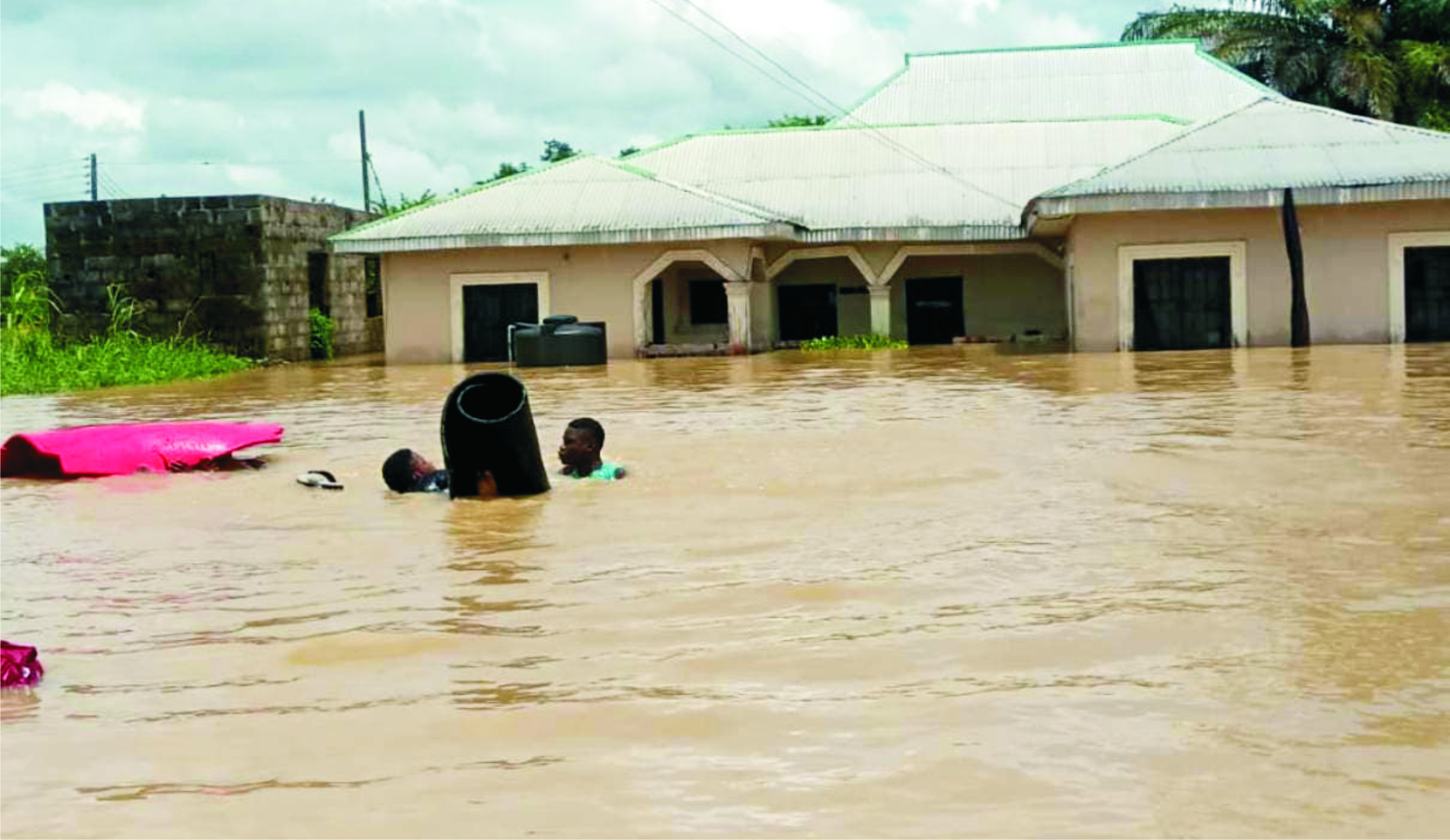
Following the devastation that the current floods have been wreaking in Rivers State and across Nigeria,
Governor Nyesom Wike has approved N1 billion for emergency relief measures to support flood victims, especially in Ahoada West and Ogba/Egbema/Ndoni Local Government Areas of the state. Consequently, the governor set up a taskforce to coordinate the distribution of relief materials to affected communities.
The Permanent Secretary, Special Services Bureau in the Office of the Secretary to the Rivers State Government, Dr George Nwaeke, is the chairman of the taskforce, while Mrs Inime Aguma is the Secretary. Other members are the Chairman of Ahoada West, Hon. Hope Ikiriko; Chairman of Ogba/Egbema/Ndoni, Hon. Vincent Job; and the Director of Administration in the Ministry of Special Duties, Hon. Chukwuemeka Onowu.
Governor Wike’s timely intervention will unarguably not end the flooding, but it will go a long way to provide succour to the victims. He deserves some dithyramb. No doubt, the money will go a long way towards tackling the flood challenge. This gesture of empathy is a demonstration of the administration’s humane and effective hallmarks. Individuals, corporates, and stakeholders should replicate the same by providing support in the form of urgent humanitarian relief for affected people.
Expectedly, members of the taskforce should hit the ground running because the assignment is pressing and colossal. They have to identify and inspect areas ravaged by flood, as well as provide succour to victims. They should pinpoint the real victims, relocate them to higher grounds and provide relief materials. Likewise, they must shun corruption and make judicious utilisation of the funds to mollify the people’s suffering.
Local government councils should band together and tackle the flood imminence in their localities. Each local government area should set aside momentous funds from their monthly allocations for dealing with the flood situation. The Rivers State Government should take necessary actions to put permanent plans in place to deal with the flooding, which has become an annual nightmare for Nigeria.
One of the measures is setting up a State Emergency Management Agency (SEMA). The absence of SEMA is affecting the management of disasters in the state. If established, the agency will be saddled with the responsibility of providing relief to victims, as a result of the consequences of such apocalypse. It will equally work together with the National Emergency Management Agency (NEMA) to manage disaster victims professionally.
More than 600 people have died in the worst flooding Nigeria has seen in a decade. Some 1.3 million people have been displaced, and more than 200,000 homes have been destroyed. The Federal Government has said unusual heavy rains and climate change are to blame. The emergency release of excess water from dams in Nigeria and neighbouring Cameroon is another key factor causing annihilatory flooding.
As several Nigerian states suffer immense flood tide, the question of why and what to do about it has become importunate. The headlines are brutal: “hundreds killed”; “hundreds of towns and villages nationwide submerged or destroyed”; “hundreds of thousands of homes damaged”; among others. But the government’s response at the federal and state levels has always remained the same. Billions of Naira are mentioned in humanitarian response, thereafter all goes quiet until it occurs again.
While the Federal Government should step in to directly address national emergencies, local governments and the states are the first responders in all situations. The lives and properties of Nigerians are at stake. Governors of those states that have swung into action should continue with their efforts, but those that have not should instantly face their duties of managing the floods within their jurisdictions. That is what they have been elected to do.
Unfortunately, enlightenment on public safety is not taken seriously in Nigeria until tragedy strikes; otherwise, the lessons of the 2012 flooding would have been enough for those at risk to take adequate precautions. However, the appropriate government agencies should act fast now to contain the worsening flooding catastrophe in the country.
Though we may have little or no control over rivers that burst their banks or other causes of the perennial alluvion, embracing appropriate environmental management, town planning, and enforcement of rules will certainly mitigate the impact of flooding that results from heavy rainfall or the release of water from dams in Cameroon or Nigeria. Regrettably, this is not the case in many states.
Most drainage channels in the metropolis have been blocked due to the indiscriminate discharge of refuse into them. Houses are illegally built on such corridors, while land reclamation is carried out with reckless abandon. These barriers to rainwater flow are recipes for disaster. Hence, the environmental authorities need to be aggressive in the dredging of canals and clearance of the drainage.
Since the flooding began, large swathes of farmlands have been destroyed. There are concerns about the increased spread of diseases, and food and fuel supplies have also been disrupted. Nigeria’s meteorological agency has warned that the flooding could continue until the end of November in some states in the south of the country, including Anambra, Delta, Rivers, Cross River and Bayelsa.
There has to be a flood management policy in Nigeria. The lack of relevant legal and policy frameworks is an indication of the low significance given to controlling and managing flooding in the country. Furthermore, the Federal Government should dredge the Rivers Niger and Benue since all the other rivers in the hinterland flow into them. It is time to pay equal attention to our waterways the way our roads are rehabilitated and reconstructed. This will free both rivers of all barriers along their way.
Editorial
Israel-Gaza War: Sustaining The Ceasefire
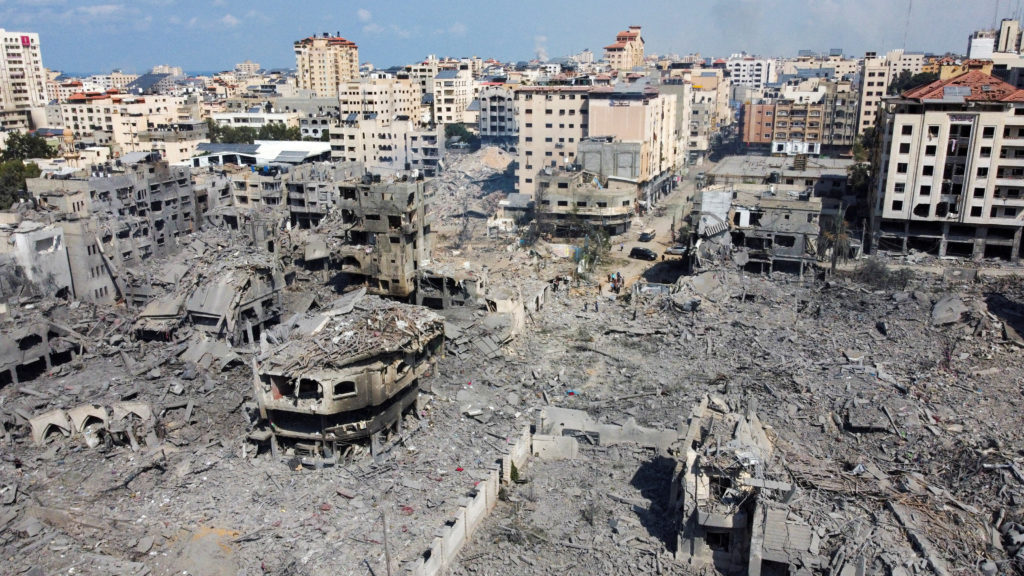
Editorial
No To Hike In Telecom Tariffs
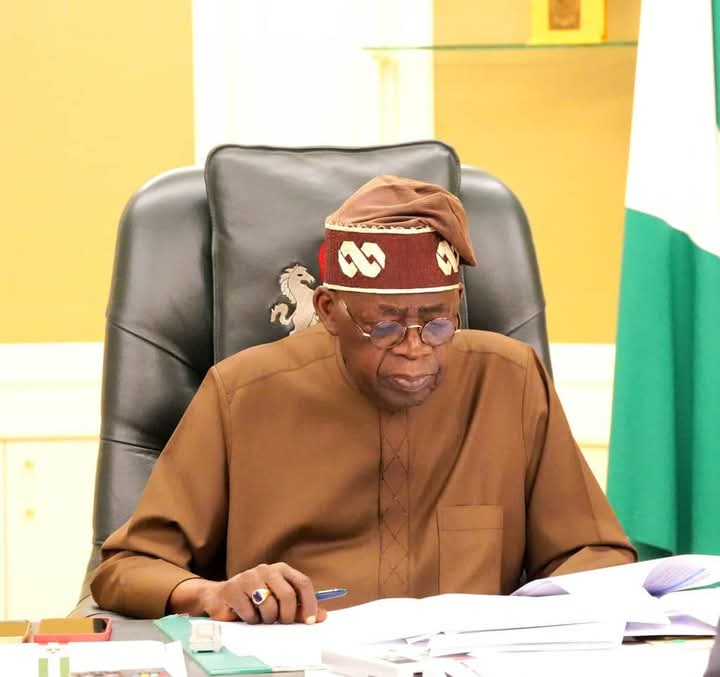
Nigerians are outraged by the Federal Government’s approval of a 50 per cent increase in telecommunications tariffs, with organised labour threatening to mobilise workers to boycott telecom services. The Nigeria Labour Congress (NLC) and the Trade Union Congress of Nigeria (TUC) have described the upcoming tariff as outrageous, lamenting that it will worsen the already harsh living conditions of workers and the masses.
Similarly, the Coalition of Northern Groups (CNG) rejected the hike, stating that it was ill-timed and did not take into consideration the struggles of Nigerians. The Human Rights Writers Association of Nigeria (HURIWA) also criticised the review, calling it an illegal, unconstitutional, and oppressive policy that undermines the fundamental rights and freedoms of Nigerians. It is a difficult moment for the industry.
Recall that the Nigerian Communications Commission (NCC) approved a 50 per cent increase in tariffs for telecom operators last Monday, instead of the 100 per cent raise that operators had requested. This decision quickly angered the consumers’ association, which criticised the government’s approval as not only punitive but also insensitive.
We wholeheartedly agree with the stance of labour and other groups on this very sensitive matter. We unequivocally condemn the 50 per cent increase in telecom tariffs. Though telecom operators cite higher operational costs and inflation as reasons for the hike, the timing and impact raise serious concerns in the current economic situation. It is a blatant attack on the well-being of the Nigerian worker and a betrayal of the people to corporate interests.
Telecommunication services are essential for daily communication, work, and access to information. However, the average Nigerian worker already spends approximately 10 per cent of their wages on telecom charges. For a worker earning the current minimum wage of N70,000, this means an increase from N7,000 to a staggering N10,500 per month or 15 per cent of their salary, a cost that is unsustainable.
This hike exemplifies the government’s apparent ease in prioritising corporate profits over citizens’ welfare. It is shocking that the government approved a 50 per cent tariff increase for telecom companies within a month, yet took nearly a year to approve the recent minimum wage for workers, despite the rising cost of living and inflation eroding purchasing power.
The questions are: When will the government stand up for the citizens it swore to protect? When will the National Assembly rise to its responsibility and hold the Executive accountable for policies that blatantly undermine the welfare of the majority? When will the common man finally heave a sigh of relief in Nigeria? We urge the government, the NCC, and the National Assembly to review the implementation of this ill-advised increase.
It is difficult to understand the state of mind of the managers of the nation’s economy. Sadly, these managers have alienated themselves from the reality of today. How can a government approve a 50 per cent hike in the tariff of telecom services when even the N70,000 minimum wage has been eroded by inflation, electricity tariff hikes, exorbitant fuel costs, transportation, and other social services?
Even if there is a need for an increase, why does it have to be 50 per cent? If, after dialogue, it is agreed that a raise is necessary, we should all consider a more reasonable increase rather than the 50 per cent hike. Fifty per cent is excessive and will only worsen the already harsh living conditions of workers, placing a heavier burden and more suffering on them and the general population.
The recognition of telecommunication services as essential components of modern society cannot be overstated. In an era characterised by rapid digital transformation, these services are fundamental not only for personal communication but also for facilitating broader socio-economic engagement. The proposed tariffs increase in the telecom sector raises critical concerns regarding equitable access to vital services that support communication, education, healthcare, and commerce.
In a democracy, the people should be the central focus of all government actions and policies. Every decision should aim to improve their quality of life. This plan must be carefully scrutinised with the welfare of citizens in mind. An increase in telecom tariffs will negatively impact many Nigerians, as the internet has become an essential tool for business, communication, and daily activities.
The Tide calls for the immediate suspension of the 50 per cent hike in tariffs. Instead, we recommend a more reasonable adjustment of a maximum of 10 per cent, which balances industry sustainability with the current economic realities in the country. We also demand that the NCC engages in genuine, inclusive consultations with consumer advocacy groups, civil society organisations, and other grassroots stakeholders before implementing any tariff adjustments.
Editorial
Hurray, Siminalayi Fubara Is 50!
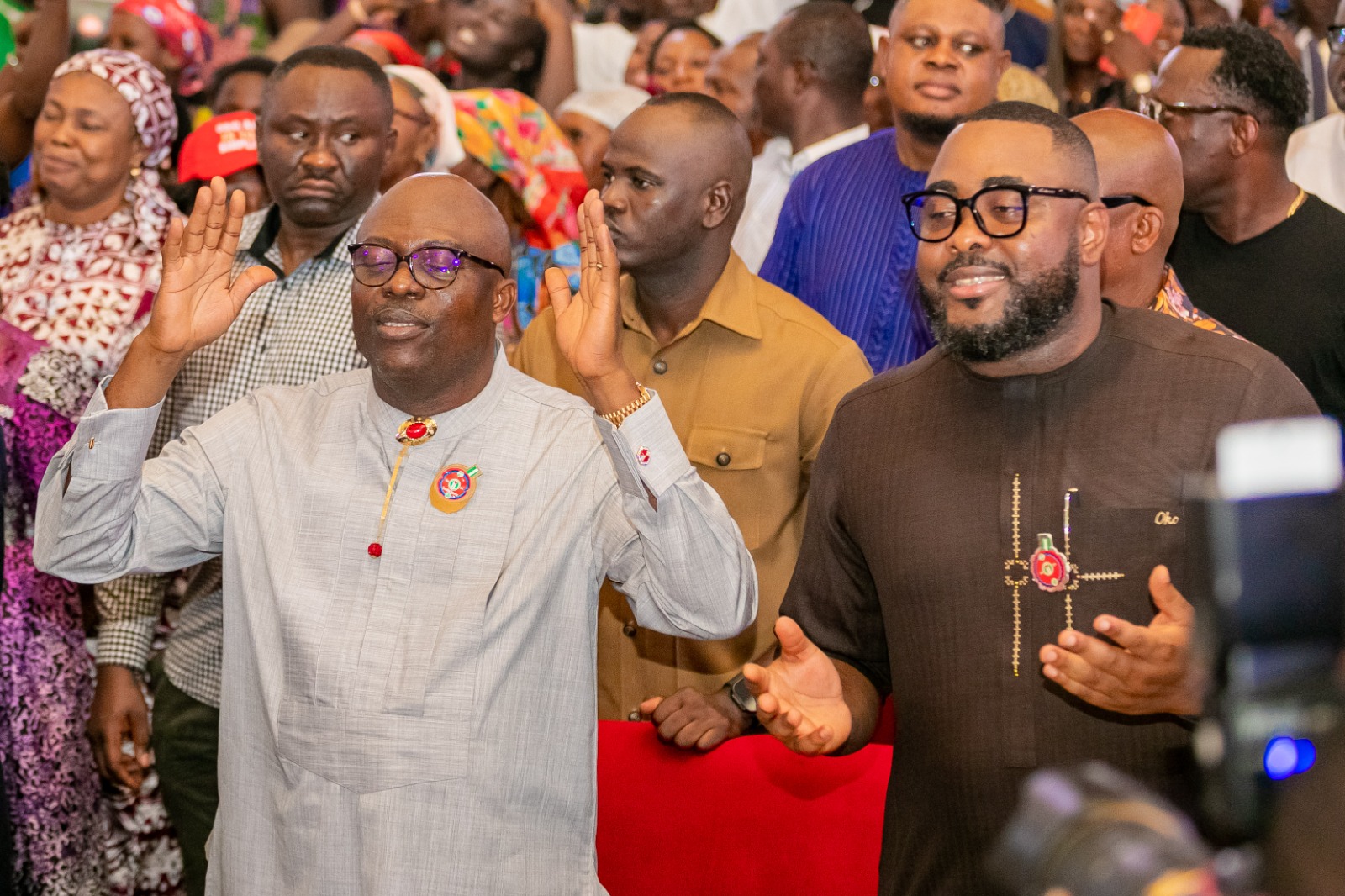
Born on January 28, 1975, in Opobo Town, Mr. and Mrs. Joseph and Love Fubara welcomed their second of five children and first son. His father, a former soldier who completed an overseas training tour of duty, instilled in him a strong sense of discipline and dedication. His mother, a civil servant, taught him the importance of hard work and perseverance.
He received his primary education at Opobo Primary School and continued his studies at Comprehensive Secondary School in Opobo. His passion for numbers led him to pursue a degree in Accountancy at the then Rivers State University of Science and Technology, now known as Rivers State University.
Upon completion of his Bachelor’s degree, he pursued further education and obtained a Master of Business Administration (MBA) and a Master of Science (MSc) from the prestigious University of Port Harcourt in 2013 and 2016, respectively. Fubara’s dedication to his studies and his commitment to personal growth have shaped him into the accomplished individual he is today.
Sim, fondly called by his colleagues, started his career in 2003 as a principal accountant at the Rivers State Senior Secondary Schools Board. His dedication led to his promotion to Director of Finance and Accounts at the Government House in 2015. In March 2020, he was appointed Permanent Secretary and then became the Accountant-General of Rivers State on December 23, 2020.
His achievements are numerous, as he is a Knight of the St. Christopher (KSC) Order of the Church of Nigeria Anglican Communion. Additionally, he holds the prestigious traditional chieftaincy title of Amaopusenibo of Opobo Kingdom. The Governor’s commitment to family is evident through his marriage to Valerie Ibiere Fubara, with whom he shares three beautiful children.
Among Siminalayi’s other significant qualifications and accomplishments are his fellowship with the Nigerian Institute of Management and his fellowship with the Association of National Accountants of Nigeria (ANAN). He holds membership in the Chartered Institute of Forensic and Investigative Auditors. His impressive background has gained him the trust and support of the Peoples Democratic Party (PDP), leading to his victory in the party’s governorship primaries for the 2023 general elections.
Fubara embodies a leadership style defined by simplicity and compassion. He exhibits patience, confidence, and empathy in his interactions with those he serves. His humility and faith in God make him trustworthy. Representing the younger generation, Sim leads with the slogan “Consolidating and Continuing the New Rivers Vision,” focusing on developing infrastructure, healthcare, education, security, agriculture, and investment opportunities for Rivers State.
The bravery exhibited by His Excellency in resisting godfatherism has attracted respect from a wide array of Nigerians, Africans, and supporters of democracy around the world. He emphasises serving the interests of the people of Rivers over any godfather. His actions unify diverse groups in the state, promoting a sense of belonging among various ethnicities.
Our affable Governor exemplifies robust moral leadership rooted in his Christian beliefs. As a devoted Knight, he shows compassion and selflessness in his governance. He fosters an environment where all religions can peacefully coexist. Fubara sponsored Muslim pilgrims for the 2024 Hajj and personally wished them well, encouraging them to pray for the state and Nigeria. His religious tolerance has earned him respect among Nigerians who value coexistence.
Moreover, the Governor’s appealing physique and charming smile have garnered admiration from many Nigerians, who view physical beauty as a reflection of inner qualities. His tall stature has solidified his status as a revered figure, commanding respect across the nation. Fubara has shown dedication to women’s issues by initiating several programmes in collaboration with the Women Affairs Ministry and the Office of the First Lady, highlighting his strong commitment to women’s empowerment and gender equality.
Sir Fubara has focused on actively involving young people in his governance by launching entrepreneurship and training schemes, notably the Rivers State Youth Empowerment Scheme. His efforts to support youth have earned him the backing of many young Nigerians. Additionally, he provides scholarships and makes donations to orphanages, demonstrating his commitment to investing in education for the benefit of children in the state.
Known for his strong commitment to national unity, this Governor reaches out to Nigerians from various backgrounds. As a state Governor, he demonstrates great nationalism by supporting citizens from other states, especially in Rivers. He respects the rule of law and democratic values, which has enabled past local government chairmen to complete their terms without issues. His effective management of Rivers State’s resources promotes transparency and accountability.
Despite facing numerous distractions, the Rivers Chief Executive has made remarkable strides in steering the state’s affairs, reflecting his unwavering focus and commitment to delivering results. He has encountered challenges but remains dedicated to his vision for a better state. His peaceful and caring leadership style has made him popular, inspiring new leaders to emulate similar qualities. By being strong yet compassionate, he has redefined the concept of leadership. Fubara’s selfless nature prioritises the state’s needs above his own. This has earned him widespread support.
As he commemorates his Golden Jubilee birthday today, even the most ardent critics, adversaries, and accusers cannot overlook that he embodies a worthy precursor in every sense.
Happy Birthday, His Excellency!
-
News13 hours ago
Monarchs, MOSOP Hail Tinubu Over Ogoni Varsity Approval
-
Politics9 hours ago
Anambra LP Aspirant Advocates Security Details Withdrawal From Politicians
-
Rivers9 hours ago
Dance Organisation Set To Hold Competition In PH
-
Nation8 hours ago
Commissioner Applauds Council Chairman’s Dev Strides
-
Business9 hours ago
Ekpo Urges For Domestic, Export Market Boost In Gas Supply
-
News13 hours ago
NIS Begins Contactless Passport Application In Europe, Friday
-
Politics9 hours ago
Grassroots Governance: Otu Signs Cross River Local Government Amendment Bill Into Law
-
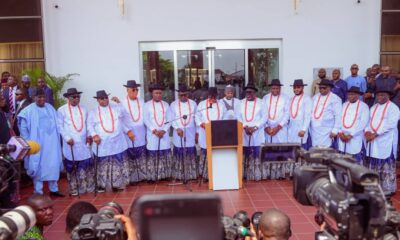
 News9 hours ago
News9 hours agoFubara Attends PDPGF Meeting In Asaba …..Back Court Verdict On National Secretary Position

